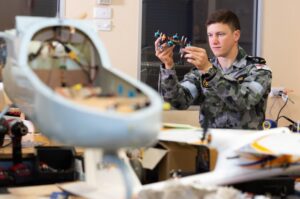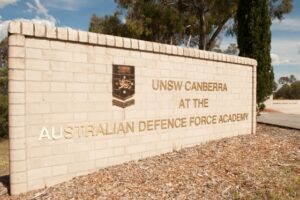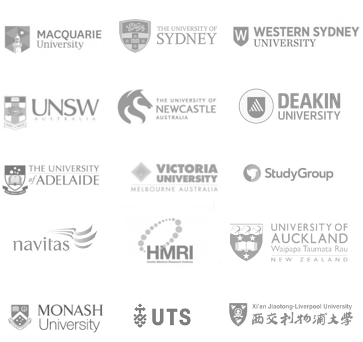
Lecturer/Senior Lecturer in Explosive Ordnance
UNSW Canberra
- Lead in the new Explosives Ordnance Masters program @UNSW Canberra (ADFA)
Full time. Fixed term five years with potential for renewal.
About UNSW Canberra at ADFA
The University of New South Wales (UNSW) is one of Australia’s leading universities ranked in the top 50 universities worldwide.
UNSW Canberra at the Australian Defence Force Academy (ADFA) is a university college of the University of New South Wales, with a unique focus on defence and security.
UNSW Canberra at ADFA houses more than 200 researchers who are recognised for their research excellence and impact. It is renowned for defence-related research, alongside many other research areas such as bushfire prediction modelling, public sector management, and other applied areas to address complex and contemporary challenges across Australia, the region and the globe.
UNSW Canberra at ADFA has been preparing future global leaders since 1967 as the official education provider for the Australian Defence Force.
UNSW Canberra specialises in high-quality undergraduate and postgraduate courses in all areas relating to military, strategic and defence studies, in defence partnerships that are crucial to protecting the security and safety of Australia and our allies.
About the position
UNSW is seeking to employ a Lecturer in Chemistry, with a focus on the forensics of Energetic Materials (EM) to undertake teaching and research activities in the School of Science, UNSW Canberra.

The Lecturer will primarily contribute to an Explosives Ordnance (EO) Masters program developed in response to a requirement from the Australian Defence Force to educate personnel to Masters level. This is a joint initiative of the School of Science and the School of Engineering and Information Technology at UNSW Canberra.
We are seeking primarily an individual who will be able to develop and deliver courses that provide education on the forensic chemistry of EM (explosives, propellants and pyrotechnics, both conventional and homemade). The individual must have expertise in the scientific principles and applied use of EM detection technologies, sampling techniques and methods for the forensic analysis of EM in military and law enforcement settings.
The successful candidate will also be expected to supervise mini-research projects in areas of EM and/or EO, and to contribute significantly to other aspects of the EO Masters, specifically curriculum development, and delivery relevant to other (Chemistry-related) courses in the program. Some teaching into the Undergraduate Chemistry teaching program is also anticipated.
While this position involves both teaching and research duties in equal part, the School will also consider candidates who may wish to apply as an Education Focussed (EF) Lecturer.
The right candidate
To be considered for this role, the right candidate will bring expert knowledge and understanding of the fundamental science of EM. They will hold a PhD or equivalent in a relevant area together with appropriate technical qualifications, knowledge and experience in EM gained within Defence, law enforcement, academia or industry. 
Contemporary knowledge and understanding of national and international best practice in forensic analysis of EM will be highly regarded. Ideally, the right candidate can demonstrate understanding of the safety aspects and regulatory frameworks associated with EO, the associated environmental issues and remediation, as well as the general principles of analytical chemistry and instrumentation for the sensing and identification of chemical explosives.
To learn more, and to apply
UNSW has engaged De Sailly Search to conduct a global search and manage the recruitment process. You are encouraged to register your confidential interest early by contacting Dr Rosalind De Sailly and Jack Andrew-Kabilafkas via email to UNSWchemEO@desailly.com.au
Full applications should systematically address the skills and experience for the role (see the dot points listed under “Skills and Experience” in the position description), include a complete and detailed curriculum vitae and contact details of 3-5 nominated referees, and a cover letter in which you indicate your motivation for the role.



